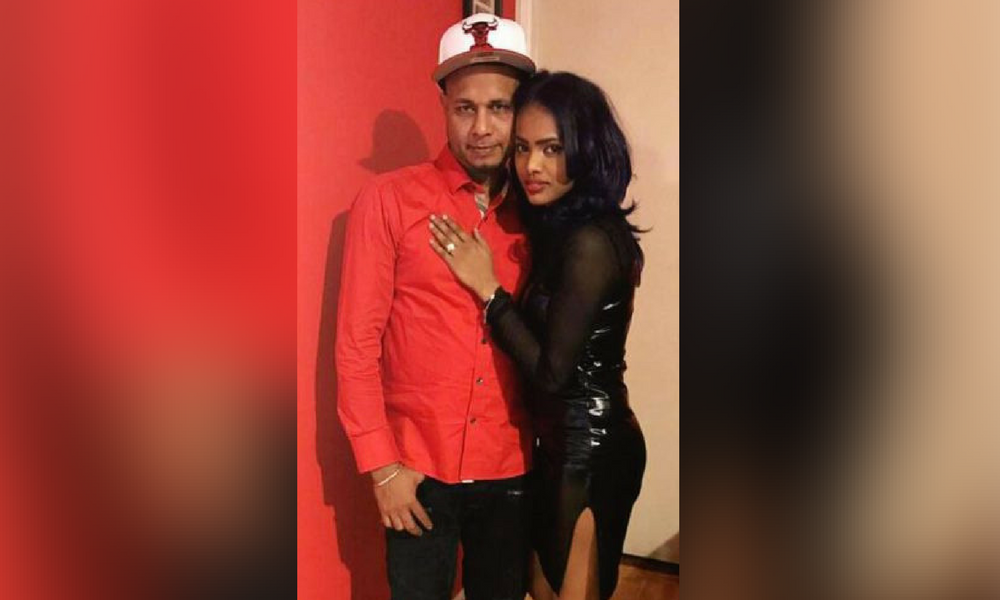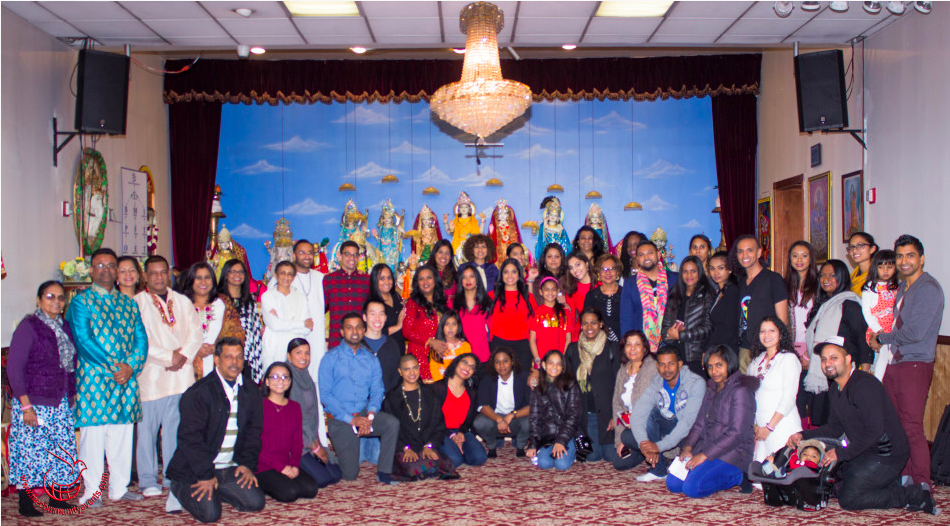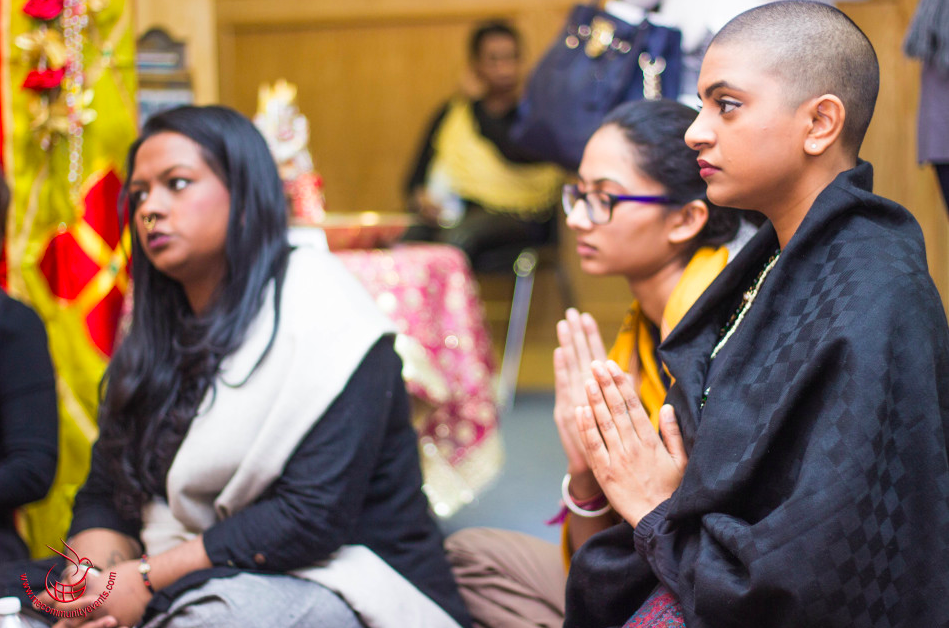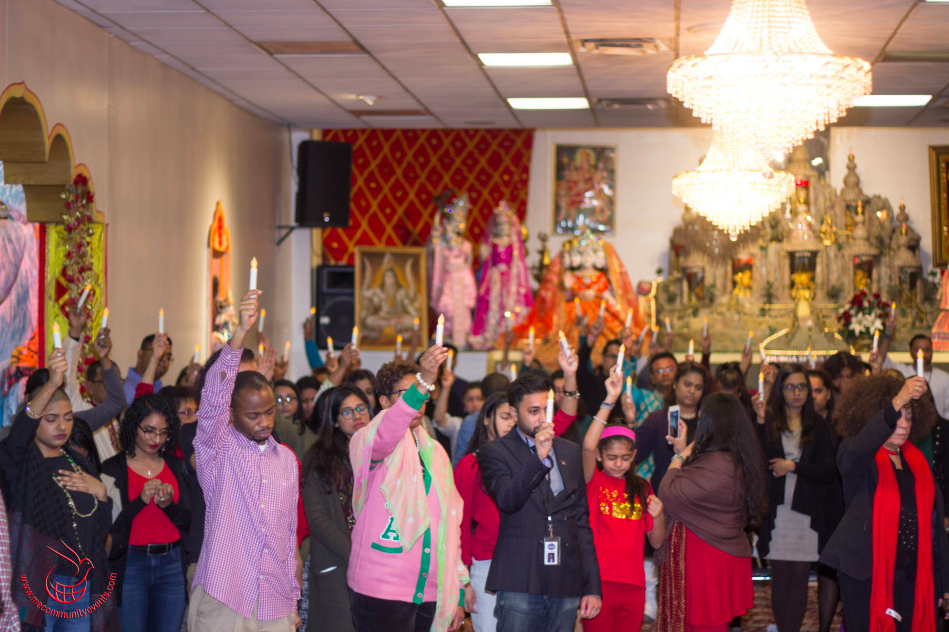
by Felicia Singh – Follow @browngirlmag
Guiatree Hardat, Natasha Ramen, Rajwantie Baldeo and Stacy Singh are names of Indo-Caribbean women killed by the hands of violent men.
On Jan. 1 Singh, the most recent victim of domestic abuse was murdered by her husband Vinny Loknath. After stabbing her repeatedly in her back he hung himself from a tree, leaving their two young children parentless.
Enough is enough.
The Jahajee Sisters, an organization committed to creating a safe and equitable society for Indo-Caribbean women and girls, collaborated with other South-Asian and Indo-Caribbean affiliated organizations on Jan. 15 to host a vigil for Singh.
Community leaders, residents of the Richmond Hill area, the family of the deceased and political advocates gathered at Bhuvaneshwar Mandir to voice their concerns and show their support in hopes of moving the needle and finding an end for domestic violence in the Indo-Caribbean community.
 [Photo Source: Me Community Events]
[Photo Source: Me Community Events]
Shivana Jorawar, Co-Chair of the Jahajee Sisters, passionately started the evening of protest by saying:
“Sometimes we hear, ‘if he loves you, he beats you.’ This is not love. There is no reason, not one thing, that makes it okay to hit a woman.”
Domestic violence’s inherited trauma and long history have had lasting effects on the Guyanese community in particular. It dates back to 1838-1917 when more men than women were brought to Guyana from parts of India to work as indentured servants. Due to the scarcity of women in colonial Guyana, men resorted to violence against the women that were there to exert their patriarchial control. This unfortunate scenario has followed us through time – and now it’s time we combat it.
In 2018, with more Indo-Caribbeans starting a new and better life in the United States, the question remains: Why are we still murdering and hurting our women?
 [Photo Source: Me Community Events]
[Photo Source: Me Community Events]
We whisper among our family and friends casually avoiding conversations about domestic violence, instead, resorting to skirting around the problem instead of dealing with it head-on.
What did she do?
She probably provoked him.
Why doesn’t she leave him?
We have created monsters and allowed ourselves to victim-blame instead of coming face-to-face with the fact that we are responsible for what is happening to our women. Because we’ve normalized domestic violence we’ve also allowed our women to be taken, stolen, brutalized and buried under the earth, all while we excuse their perpetrators from their actions. We are to blame.
Singh’s Vigil allowed for voices across all diasporas to speak their truth, share their stories and pray together in hopes of continuing along the path to attaining justice for those abused.
 [Photo Source/Me Community Events]
[Photo Source/Me Community Events]
How can women and men play a part in ending domestic violence?
First off, we need to understand that the root of domestic violence is gender inequality.
Gender inequality starts in the home. It happens when we treat our sons differently because they are boys who will grow up to be men, while we treat our girls adversely because they will grow up to be ‘inferior’ women.
As a community, we need to defy gender norms by teaching children that there are no set ‘roles’ for women or men. The language of ‘that’s for girls’ or ‘only boys can do that’ is dangerous and limiting for our children. This also means teaching our boys not to use their fists and telling them it’s okay to cry. Education goes hand in hand with teaching our children to be forces of justice and future leaders who will collaborate with women to create change and eliminate domestic violence once and for all.
Challenging the dialogue disrupts the cycle. If you hear a relative or friend victim-blaming, take a minute to help change their perspective. All victim-blaming does is help people accept their own well-being, it does nothing for the person experiencing the trauma.
For example:
Friend: She’s stupid for not leaving him.
You: You know, that’s easier said than done. Maybe, she depends on him monetarily, or maybe he is threatening to hurt her if she does. We don’t know her situation and it’s unfair of us to judge her. What can we do to help change her situation?
Our culture cares about “showing face,” but our reputation and social revere more important than our women’s lives?
Faith-based leaders need to be part of the initiative as well. They need to start stepping up and taking responsibility for ending domestic violence since they hold so much power within the Indo-Caribbean community. They can have courageous conversations about parts of their scriptures that perpetuate patriarchy and create a space for conversations among women and men to open up about issues at home.
We couldn’t save Singh, but having courageous conversations to challenge taboos in our culture, hosting inclusive gatherings at faith-based institutions, and sharing a resource with someone who might be abused might help save one more woman.
Domestic violence does not discriminate. It could happen to anyone, anywhere, but why should it happen at all?
–––
Below is a list of people and organizations who can help those suffering from abuse:
New York City’s 24-hour Domestic Violence Hotline, or call 1-800-621-4673
NYC Gay and Lesbian Anti-Violence Project: 212-714-1141
Sadhana: Coalition for Progressive Hindus
 Felicia Singh is a New York City native. She served in the Peace Corps from 2013-2015 in China as a TEFL volunteer. During her service, she created and co-taught her school’s first women’s studies course. She also was the Editor-in-Chief of Peace Corps China’s Gender Equality and Women’s Empowerment Newsletter. She holds an M.A. in Adolescent English Education for grades 7-12 and currently teaches in Brooklyn. Her passions include but are not limited to discussions on race and diversity, gender equality and feminism, and understanding the balance between a healthy mind and body.
Felicia Singh is a New York City native. She served in the Peace Corps from 2013-2015 in China as a TEFL volunteer. During her service, she created and co-taught her school’s first women’s studies course. She also was the Editor-in-Chief of Peace Corps China’s Gender Equality and Women’s Empowerment Newsletter. She holds an M.A. in Adolescent English Education for grades 7-12 and currently teaches in Brooklyn. Her passions include but are not limited to discussions on race and diversity, gender equality and feminism, and understanding the balance between a healthy mind and body. 



